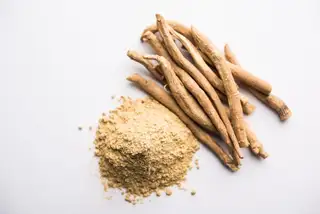
How to Get the Most Benefits from Turmeric
Turmeric, a bright yellow spice derived from the Curcuma longa plant, has gained significant attention in recent years for its numerous health benefits. Rich in a compound called curcumin, turmeric holds the potential to improve various aspects of our well-being. But how can we ensure we're maximizing these benefits? Let's explore the ways to unlock the full potential of turmeric.
Understanding the Properties of Turmeric
Turmeric contains curcuminoids, with curcumin being the most studied and prominent. Curcumin is known for its antioxidant, anti-inflammatory, and antimicrobial properties. These attributes make turmeric a powerful ally in promoting overall health and preventing various diseases.
The anti-inflammatory effects of curcumin are comparable to those of some non-steroidal anti-inflammatory drugs, but without the associated side effects. It works by modulating the body's inflammatory pathways and reducing the production of inflammatory molecules.
The Challenges of Absorbing Curcumin
While turmeric is highly beneficial, one of the main challenges is that curcumin has poor bioavailability. This means that when consumed on its own, the body has difficulty absorbing and utilizing it efficiently. To overcome this, several strategies can be employed.
Combining Turmeric with Black Pepper
Adding black pepper to turmeric is a simple yet effective trick. Black pepper contains a compound called piperine, which significantly enhances the absorption of curcumin. Just a pinch of black pepper when consuming turmeric can make a substantial difference in the amount of curcumin that enters the bloodstream and exerts its beneficial effects.
Using Turmeric in Fat-Based Dishes
Curcumin is fat-soluble, meaning it dissolves and is absorbed better when consumed with fats. Incorporating turmeric into dishes like curries made with coconut milk, or using it in salad dressings with healthy oils such as olive oil, can increase its bioavailability.
**Taking Turmeric Supplements**
For those looking for a more concentrated and convenient form, turmeric supplements are available. These can come in various forms, such as capsules, tablets, or liquids. When choosing a supplement, it's essential to look for high-quality products that contain standardized amounts of curcumin and possibly include piperine for enhanced absorption.
Incorporating Turmeric into Your Daily Diet
There are numerous ways to incorporate turmeric into your daily meals. You can make golden milk, a warm and comforting beverage made with turmeric, milk, and spices. Turmeric can also be added to soups, stews, and rice dishes for an extra flavor and health boost.
The Right Dosage of Turmeric
Determining the appropriate dosage of turmeric depends on various factors such as your health goals, current health status, and other medications or supplements you might be taking. Generally, for general health maintenance, a daily intake of 1 to 3 grams of turmeric or 500 to 2,000 milligrams of curcumin is often recommended. However, for specific conditions or therapeutic purposes, higher dosages might be advised under the guidance of a healthcare provider.
Pairing Turmeric with a Healthy Lifestyle
To truly maximize the benefits of turmeric, it should be combined with a balanced diet, regular exercise, and adequate sleep. A healthy lifestyle supports the body's natural processes and enhances the effectiveness of the nutrients we consume.
Conclusion
Turmeric is a remarkable spice with tremendous potential for improving our health. By understanding its properties, addressing the challenges of absorption, and integrating it into our diet and lifestyle in the right ways, we can unlock its full benefits. Whether it's through adding it to our favorite recipes or considering supplements, turmeric can be a valuable addition to our pursuit of optimal well-being. Remember, always consult with a healthcare professional before making significant changes to your diet or supplement routine, especially if you have underlying health conditions or are taking medications.





